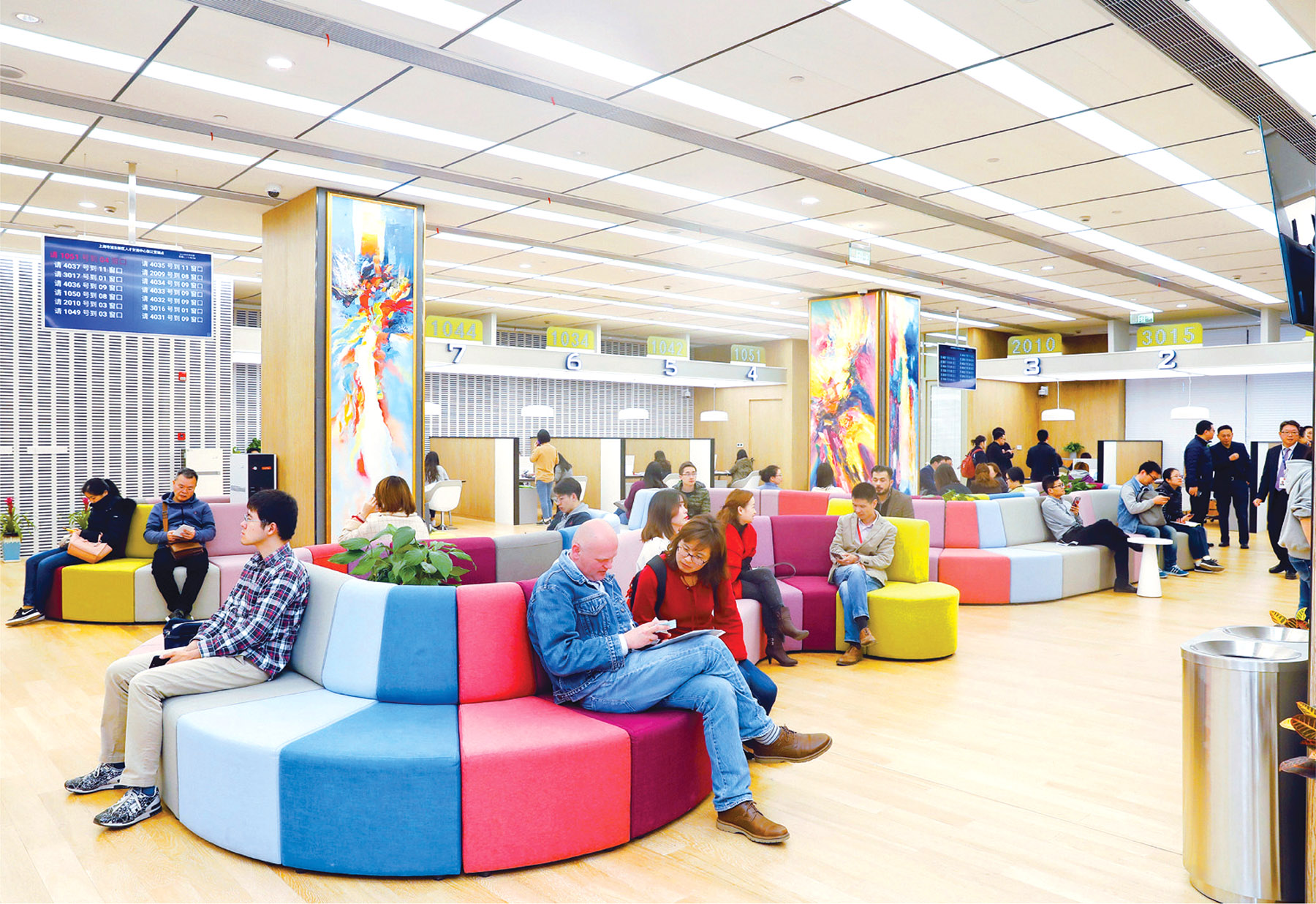Shanghai’s different districts implement action plans to better serve multinationals, tech firms

Facilitating the development of technologically advanced companies and better addressing the needs of multinational companies have been the major highlights of the business improvement action plans of different districts in Shanghai.
Nurturing new quality productive forces, improving investment quality and capacity, and creating an industrial ecosystem are among the 10 major actions that Pudong New Area will take in 2025 to further improve its business environment, the district government said during an investment promotion conference on Feb 6.
The Pudong New Area Science and Technology Commission released at the same conference five major initiatives for investment promotion services, detailing 17 measures, such as implementing industrial ecological aggregation and improving service quality rendered to companies.
With much confidence in Pudong’s continued efforts to better its business environment, Zeiss Group, a German manufacturer of optical systems and optoelectronics, has decided to acquire a land plot in the China (Shanghai) Pilot Free Trade Zone in Pudong this year to build a comprehensive industrial park for its China headquarters.
Xie Lei, chief operating officer of Zeiss China, revealed this during the investment promotion conference. Covering 40,000 square meters, the industrial park will attract a total investment of over 600 million yuan ($82 million). This shows the firm’s positive outlook on the Chinese market and the aim to be more deeply rooted here, said Xie.
Another seven industrial projects were landed in Pudong during the conference.
Shanghai AgiBot Innovation Technology Co unveiled a headquarters and training facility in Pudong, which will entail 1.5 billion yuan in investment in the next five years.
Yuwei Semiconductor Technology announced an 800-million-yuan equipment research and development project in Pudong, which is aimed at breakthroughs in the mass application of high-end semiconductor testing equipment.
Mingyang Group, a new energy company, will invest 880 million yuan via its international headquarters located in Shanghai to embark on the integrated exploitation and innovation for ocean energy.
Likewise, industrial digitalization will be one major contributor to a better business environment in Fengxian district in southern Shanghai. According to the district government, it will develop and build application scenarios for 100 new technologies this year. Several smart and green factories will be built in the district.
Meanwhile, Fengxian-based traditional companies adopting smart technologies for their digital transformation will gain more government support. In general, companies will be encouraged to develop management innovation, business model innovation, equipment upgrading, and expansion of production scale.
Jing’an district, which tops central Shanghai in terms of the scale of foreign-invested economy, will further enhance communication between government departments and companies. Besides, the local government will come up with more measures to boost consumption.
These are part of the district’s efforts to improve its business environment so that foreign companies can be more deeply rooted in the Chinese market.
To facilitate multinational companies’ expansion, Changning district in western Shanghai will improve the key functions of the Shanghai Hongqiao One-stop Service Center for Overseas Talents, which was officially launched in 2016.
The service center should grow into a complex that can radiate the rest of the Yangtze River Delta region and attract talents from all over the world, said the Changning government.
Similar attempts will be made in central Shanghai’s Huangpu district. The district will create the Bund International Talent Service Center this year, which should be a flagship one-stop platform serving expatriates working, setting up new businesses, studying, or living in Shanghai.
Specifically, expatriates can apply for work permits and household registration services at the center. Life-related services such as medical services and education will also be available at the center.
Huangpu district will also strive for breakthroughs in customs and clearance, daily life support, academic exchanges, innovation, and establishment of new businesses so that foreign talents can obtain all necessary services here.
Li Junfeng contributed to this story.


